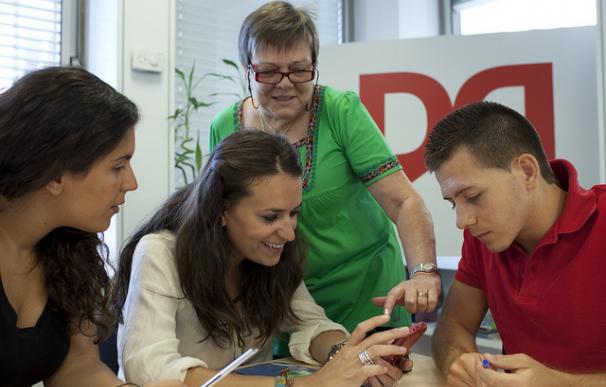
Las negociaciones profesionales son duras, imagínate entonces tener que negociar en inglés: un nuevo contrato, una nueva posición en el mercado, contrataciones de personal, etc… Colby Price, de Diverbo, empresa especializada en la enseñanza de idiomas, nos da algunas frases y vocabulario en inglés útiles para estas negociaciones. Con ellas te resultará todo más fácil. "Básicamente hay dos tipos de negociaciones: a win-win negotiation, where the best solution for everybody is lokeed for. Y "a win-lose negotiation", where you seek to defeat the other part. If you are negotiating with a competitor or somebody that you will never do business with again, this tactic might work", aclara.
-Lo primero que tienes que hacer cuando negocias es establecer un objetivo, "a goal". "What do you want to get from the negotiation? What is the maximum that is justifiable? What is the minimum that you can accept? What can be negotiated and what cannot be modified", explica Price.
-Cuando estás negociando puedes adoptar una postura agresiva. En inglés se diría "to play handball". "The phrase comes from baseball. In the business world it means "to be aggressive" or "to not compromise", explica. Ejemplo: "When you buy a house or a car the seller often plays hardball. In this situation, the buyer almost always loses". "Playing dirty (jugar sucio) or even playing hardball may negatively affect the negotiation or could have future consequences. It is usually better to be open and honest when you negotiate", añade.
-Otra frase típica de las negociaciones es "to have a lot at stake". "Significa tener mucho en juego. "It's just as important to understand what the other person wants. It is important to know what the alternatives to an unsuccessful negotiation are. You should ask yourself what are the consequences if we don't reach a negotiation? What can we do?".
-Deja fuera tus sentimientos: "Keep your personal feelings out of a negotiation. If you have personal issues (temas personales), it is important to leave them out of the negotiation.-"It is good to have an idea of what the outcome (resultado final) will be. What happened in similar, past negotiations? How do the people you will meet with negotiate?", explica Price.
-"You sometimes hear the phrase what have you got to lose? (qué tienes que perder). It is essential that you know the consequences of winning or losing a negotiation for both you, and the other part. Will somebody lose money or lose their job, for exemple?", finaliza.
Más información en www.diverbo.es


Hemos bloqueado los comentarios de este contenido. Sólo se mostrarán los mensajes moderados hasta ahora, pero no se podrán redactar nuevos comentarios.
Consulta los casos en los que lainformacion.com restringirá la posibilidad de dejar comentarios